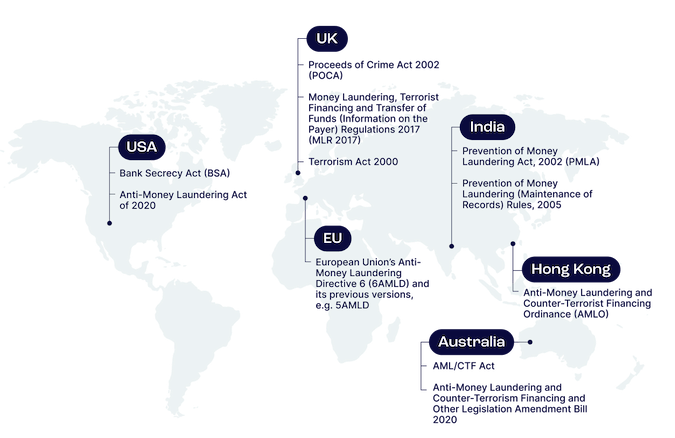Online gambling is booming, with the global market projected to hit $153 billion by 2030. But with this growth comes heightened regulatory pressure. To stay compliant and secure, gambling operators must enforce strong Know Your Customer (KYC) and Anti-Money Laundering (AML) measures, all without sacrificing user experience.
Balancing these demands isn’t easy. Fraudsters exploit the high-speed, high-value nature of iGaming, while regulators expect ever-tighter controls. This guide unpacks what KYC and AML mean for gambling platforms today, the key compliance challenges and how operators can meet requirements while keeping players engaged.
What Is KYC in Online Gambling?
KYC verification in online gambling refers to the process of confirming a player’s identity by collecting and validating personal information, typically a name, address, date of birth and proof of ID. These checks are a legal requirement for licensed iGaming operators and are designed to prevent fraud, underage gambling and financial crime.
While specific requirements vary by jurisdiction or licensing body, the goal remains the same: to ensure each player is who they claim to be. This is especially important in iGaming, where high transaction volumes, volatile betting patterns and fast cashouts make the industry a frequent target for money laundering schemes.
In this context, robust KYC verification isn’t just a regulatory checkbox; it’s a frontline defense against risk and a cornerstone of responsible gambling.
Why Are KYC & AML Important in Gambling?
KYC and AML in online gambling are more than just regulatory checkboxes: they’re fundamental pillars of a secure, trustworthy and legally compliant platform. In a fast-moving and high-stakes industry, verifying player identities and monitoring financial activity helps operators:
- Stay compliant: Most jurisdictions mandate strict KYC and AML procedures. Non-compliance can lead to hefty fines, legal action or even license revocation.
- Prevent fraud: KYC checks help block identity theft, account takeovers and other forms of abuse by confirming each user’s legitimacy from the start.
- Protect players: Responsible verification helps safeguard vulnerable users, including minors and those at risk of gambling harm.
- Combat financial crime: AML measures expose suspicious transactions, making it harder for bad actors to exploit gaming platforms to launder money.
- Build reputation: Demonstrating a proactive stance on compliance and player safety enhances brand trust and credibility in a highly regulated market.
Discover how Italian iGaming leader Betflag reduced fraud and accelerated onboarding with SEON — all without adding player friction.
Case Study
KYC/AML Requirements for Gambling
KYC and AML requirements for gambling vary by jurisdiction, but the core principles remain consistent worldwide: operators must verify player identity, age and address before allowing access to real-money gaming.
These requirements are typically outlined within national or regional AML legislation, many of which align with international frameworks like the United Nations Office on Drugs and Crime’s (UNODC) AML/CFT programs. These programs promote best practices to combat both traditional and emerging money laundering tactics, including those linked to online gambling and digital financial flows.
While the specifics depend on licensing authorities and local laws, all reputable iGaming operators are expected to implement robust customer due diligence (CDD) and maintain the ability to detect, report and respond to suspicious activity in real time.
Some of the legal mandates from major countries around the world are:

Challenges & Risks for AML and KYC in Gambling
Meeting KYC and AML obligations in online gambling is increasingly complex, especially as gambling fraud tactics evolve and criminals exploit regulatory gaps.
On the regulatory side, authorities have tightened compliance requirements in response to technological advances, cross-border transactions and geopolitical risks. At the same time, fraudsters and money launderers are constantly adapting, using techniques like smurfing (splitting large sums into smaller transactions) and deploying money mules to bypass traditional controls.
For iGaming operators, the risks of falling short are significant:
- Heavy fines and legal penalties
- License suspension or revocation
- Player friction from intrusive verification steps
- Increased churn during onboarding
- Damage to brand reputation
- Stalled growth due to compliance bottlenecks
The challenge lies in striking the right balance: staying fully compliant without disrupting the player journey. That means implementing smart, low-friction solutions that adapt to both regulatory shifts and emerging fraud threats.
Here’s how smart KYC checks are implemented along the player journey:
Compliance Tools Every iGaming Platform Should Have
iGaming brands need KYC, CDD, and AML software tools that strictly comply with regulations without To meet rising regulatory demands while protecting the player experience, iGaming operators need smart, scalable compliance solutions. The right tools can help flag suspicious behavior, verify users seamlessly and maintain trust without creating friction that drives players away.
Essential features to look for in compliance and fraud prevention platforms include:
- Full alignment with regulatory frameworks across jurisdictions
- PEP and sanctions list screening to spot high-risk individuals
- Real-time account monitoring to catch red flags as they occur
- Robust document and identity verification capabilities
- Monitoring of transaction patterns and deposit methods
- Machine learning to detect emerging fraud trends
- Digital footprint and behavioral analysis to assess user legitimacy
- Device intelligence for identifying shared or suspicious access points
- Use of shared or internal blacklists to catch repeat offenders
- Affordability checks to promote responsible gambling
- Lightweight pre-verification filters to screen risky signups early
Modern compliance tools must work quietly in the background, minimizing disruption while maintaining high detection standards. In iGaming, where privacy matters and attention spans are short, discreet, real-time risk assessment is the difference between compliance success and lost revenue.
SEON enables iGaming companies to verify users instantly using 900+ first-party data signals — reducing manual work and eliminating player friction.
Ask an Expert
How SEON Complements AML & KYC for Gambling Platforms
SEON’s fraud prevention and AML platform is purpose-built for fast-moving, high-risk industries like online gambling, helping operators stay compliant, reduce risk and deliver seamless user experiences.
Here’s how SEON empowers iGaming teams:
- Digital footprint and device intelligence checks at signup: Instantly analyze email, phone, IP and device data to assess user legitimacy with no need for documents upfront.
- Early risk detection: Pre-verification checks surface fraud signals before onboarding, allowing you to flag fake or high-risk profiles in real time.
- PEP & sanctions screening: Automatically screen users against global watchlists and manage alerts and cases seamlessly from one platform to meet AML obligations with minimal manual effort.
- Real-time behavior analysis: Monitor transactions and user actions as they happen to detect suspicious patterns and intervene early.
- Customizable rules engine: Deploy SEON’s ready-made iGaming rules or tailor your own based on fraud trends, regions or promotions.
- Machine learning insights: Improve accuracy over time with adaptive risk scoring informed by your platform’s unique fraud landscape.
From bonus abuse to identity fraud and regulatory compliance, SEON provides the tools to protect your platform, all without slowing down genuine players.
Frequently Asked Questions
KYC in online casinos is tailored to address the sector’s unique risks, such as frequent large transactions and rapid bankroll fluctuations, which heighten money laundering concerns. This makes the KYC process more rigorous compared to other industries, where financial activities are more stable.
Non-compliance with KYC and AML regulations can lead to severe penalties for gambling platforms, including hefty fines and license revocation, in addition to player dissatisfaction, user churn, negative publicity, and hindered growth.
AML (Anti-Money Laundering) in online gambling refers to measures that prevent platforms from being used to hide or move illicit funds. This includes monitoring transactions, verifying users and reporting suspicious activity.
Since real-money gaming often involves large and fast-moving sums, it can attract money launderers and money mules. AML verification helps detect and block such activity to ensure legal compliance and platform integrity.
Related Articles:















